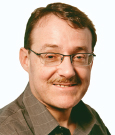This year’s Best of ASCO meeting held in Seattle featured topics that both riveted attendees and pushed their buttons, according to program chair Alan P. Venook, MD, of the University of California, San Francisco.
“I am extremely pleased with the quality of the presentations from the faculty, but more so, the questions from the participants in the audience. I think their level of engagement is really striking,” he commented in an interview. “Of course, this is a bit of a biased sampling; the people who come to this meeting are motivated. But this is ASCO at its best, which is with really good speakers, getting down to the details of the information that was presented.”
Animated Discussion
At the meeting, which drew approximately 400 attendees, topics that garnered particularly animated discussion during question-and-answer periods included genitourinary cancers, survivorship, and rising costs of oncology care. Although major advances were made in many cancers this year, according to Dr. Venook, “I think we can’t be satisfied with the progress in any of these diseases.”
Issues surrounding the costs of care—their causes, impacts, and possible solutions—got many meeting attendees out of their chairs. “That is an underlying theme that we have to be cognizant of, and certainly this coming year, at the 2015 ASCO Annual Meeting, this will also be a featured issue, because I do think we are going to break the bank pretty soon, and there has to be much more acknowledgment of that,” he said. “That was interesting because it divided up the participants. Some people were really into it, and others—you could just see their skin on fire because they were so unhappy with the discussion. But I think that’s a discussion we need to have.”
This year’s program also incorporated a number of 50th anniversary–themed education sessions from the Annual Meeting, recapping the history of research in various cancers and how to apply it in practice. “We’re trying to be less conventional. The educational components have historically been less disease oriented and pretty straightforward—for example, stage II colon cancer, this is what you do,” Dr. Venook elaborated. “And [now] we are really trying to get at the more practical issues in closing the education gap, which is really a matter of integrating the scientific and clinical data. So we are tackling a much tougher topic.”
Reaching More Oncologists
A show of hands suggested that few attendees had been to the Annual Meeting in Chicago, but those would be the people expected to attend, Dr. Venook observed. “What is unique here is that this is the crème de la crème of the oncology community, the most motivated of the oncologists. It may be that we are preaching to the choir because they are interested and they may already know a lot of this stuff,” he acknowledged.
“What we have to do is reach out to the doctors who don’t come to this meeting and don’t go to ASCO, but make sure we have a venue for them to learn this,” he continued. “That’s what ASCO University is trying to do, certainly in trying to create these modules for educating.”
Clinicians who were unable to attend the meeting will indeed be able to access its session through ASCO’s Virtual Meeting, Dr. Venook noted. Even so, “we need to do more to reach more oncologists. The deficit in education is getting greater and greater because it’s much harder to do what we do. I’m not sure how to go about doing that, but we have to figure that out. That’s a challenge to all of us at ASCO. The materials are great, but if you can’t disseminate them,” they won’t have impact, Dr. Venook concluded. “Getting to the folks who don’t come to these meetings is really where our challenge is.” ■
Disclosure: Dr. Venook reported no potential conflicts of interest.


